Uncategorized
Pedal to Resettle Rider Highlight: Meet Paul Sassenrath
Paul is a World Relief Sacramento volunteer, advisory council member and a Pedal to Resettle 2019 rider. We asked him to share his volunteer journey and why he has signed up to ride 180+ miles this September to fundraise for refugee families in the greater Sacramento area.
About three years ago, I attended a Christian leadership event and heard a World Relief staff member speak. I had been following the refugee crisis on the news and was feeling increasingly hopeless. What are we going to do? How are we going to solve this problem? I was debriefing the event with my wife that night, and I broke down. God was clearly at work in me.
My involvement with World Relief began in fits and starts. I attended a volunteer training, but I was slow to get connected. Then, I met (now) World Relief’s director, Kerry Ham. I felt an instant connection. We are both operations guys, we think and strategize in similar ways. I helped him start an advisory council or what you might call a board. We recruited members and established our purpose and vision as a council. I knew, however, I needed to do more than play a strategic role. I needed to work with refugees directly.
I signed up to be a Good Neighbor. I was a one-man team and was partnered with an Afghan family. We have grown to be good friends and my wife and I visited them in the hospital when they had their third child. While I have a passion for working with refugees, as a person of faith, I believe we are called to welcome the stranger. There are situations where I believe a person might pray about how or whether to engage. Helping those in need is not one of those situations. It is not a decision to pray about; it’s something you do.
I’m excited to participate in Pedal to Resettle. I have a passion for working with refugees, and cycling is always something I’ve enjoyed. Growing up in Davis, CA, riding a bike is second nature. It’s a city where everyone bikes. Granted, I have never ridden three days in a row, and this is something I’ll need to train for. I’m especially looking forward to day two as my wife will join me, and we’ll ride our tandem bike. There’s an energy that comes with being in a group, so I’m looking forward to joining others on this ride.
Paul along with other Pedal to Resettle riders fundraise to support newly arrived families with vital services such as housing, employment, education and immigration legal services. Learn more about joining Pedal to Resettle 2019 as a rider, donor or volunteer. It’s simple: you ride, refugees thrive.
Reflections from the US-Mexico Border
Last week World Relief Sacramento’s Office Director, Kerry Ham, visited asylum seekers at the United States-Mexico border. He and pastors from Vida Church Sacramento and Bayside Church Folsom saw firsthand the work of World Relief and heard stories from those who have fled in hope of safety and refuge in the US. Ham reflects on some of the stories he heard and the current situation below:
In the afternoon, I found myself on the US side of Friendship Park, first inaugurated by Pat Nixon in 1971. Over the next two decades, the border was marked primarily by a marble obelisk known as Monument #258. In 1994, things began to change, however, starting with the construction of one wall. Today, the border consists of two walls and a 20-foot space only available from the American side for a few hours on weekends. Separated families reunite at the wall where they can touch fingertips.
I reflected on everything I had seen that day and everyone I had met. That morning, we crossed the border and came upon a plaza full of migrants. Many waited in a line for a number that would not be called for months. Some were returning to see if today was the day they would be able to plead their case. In this scene of total limbo, I met Miguel. Miguel and his family left their home after he was shot by members of a local gang. In his hometown, he was a business owner, but he could not pay the shakedown money required by gangs controlling the city. He, his, wife, and their four children had been in Tijuana for three months now. Between the six of them, they had only two suitcases. His oldest daughter carried the baby, and his wife held one of the suitcases. As Miguel showed me his bullet scars and described his situation, he broke down…and so did I.
Our group visited a shelter where I met Esma and Gabi, who told of their journey north after their husbands had been killed. The “shelter” was a semi-open roofed structure with a few walls and was similar in square footage to my house. Instead of furniture, it was filled with 48 tents and 117 women and children.
We visited another group seeking shelter, in this case living in a “tent city” located in a park. Dozens of tents housed deported US Military veterans, many of whom had completed combat tours. They fought with the US military with the promise of citizenship. Many returned with the effects of war only to be deported. It was shocking to me. I spoke with a man named Roberto who had been deported several months prior. He had no place to go. He came to the United States when he was seven and had lived there for twenty years before being separated from his wife and their four children, all of them US citizens. He could not quite finish telling his story before he began to sob.
After we prayed for Roberto, I looked to the North. Just over the wall was San Diego, a city shining by the sea complete with sailboats in the harbor. The image was a stark contrast to the makeshift shelters and crowded plaza. In less than a day, what I had known to be conceptually true became utterly concrete: we are in the midst of a full-blown, humanitarian, refugee crisis. There were internally displaced persons (IDPs) fleeing violence. There were refugees who had been forced to cross international borders as well as those seeking asylum in a safe country. Thousands of people in limbo who had lost loved ones along the way, who could not return home without facing death.
The US government is not allowing them to go through legal asylum channels. Individuals like Miguel and Roberto have little hope. This refugee crisis is not happening across oceans or in other continents. Many have made long, perilous journeys. And now, they wait. They can see where they want to go. San Diego, that beautiful, American city is within sight. So close, but so untouchable.
At the national level, World Relief continues to affirm its call for bipartisan immigrant reforms. In a recent press release, World Relief’s VP of Policy and Advocacy, Jenny Yang said, “The U.S. can be both secure and compassionate…It is entirely right that our government invest in smart border security, restricting anyone who would harm our country while also keeping the U.S. open to those who qualify under our laws to enter including those with a credible fear of persecution.”
At the local level, World Relief Sacramento’s Immigration Legal Services team continues to serve clients on their path to citizenship. Join us as we support our immigrant neighbors and learn more about volunteer opportunities with our Immigration Legal Services.
Winter Cup 2018
Saturday, December 8th, we hosted our first refugee youth soccer tournament—The Winter Cup 2018—at the San Juan Soccer Club Futsal facility in Rancho Cordova. Registration opened at 8:30 a.m., but by 8:00 a.m. a large queue had already formed. Players were eager to know which team they were on and to meet their coaches. Before the tournament officially began, the eight competing teams gathered to hear rules and words of welcome from organizer, Luke Voight.
Part of Sports Friends International, Luke and his wife, Becca, joined World Relief this summer to launch The Welcome Club, an after-school refugee youth program serving children in the Arden Arcade and Carmichael area. For the past several months, they have organized weekly soccer games and activities for Afghan refugee children. While Luke ran the tournament, Becca oversaw a carnival for the players and their siblings.
The teams were divided into two divisions—four under 10’s teams (U10) and four under 14’s (U14). After pool play finished, players and spectators broke for lunch from a halal pizza grill. Two of the four semifinal matches ended in penalty kicks. In both instances, the courts erupted into celebration. Parents snapped photos and videos, and players hoisted the goalkeeper and final scorer onto their shoulders. Ultimately, the blue team also known as the Afghan Kings won the U10 division, and the yellow team known as Team Motahid from Starting Point for Refugee Children (another local nonprofit) won the U14 division.
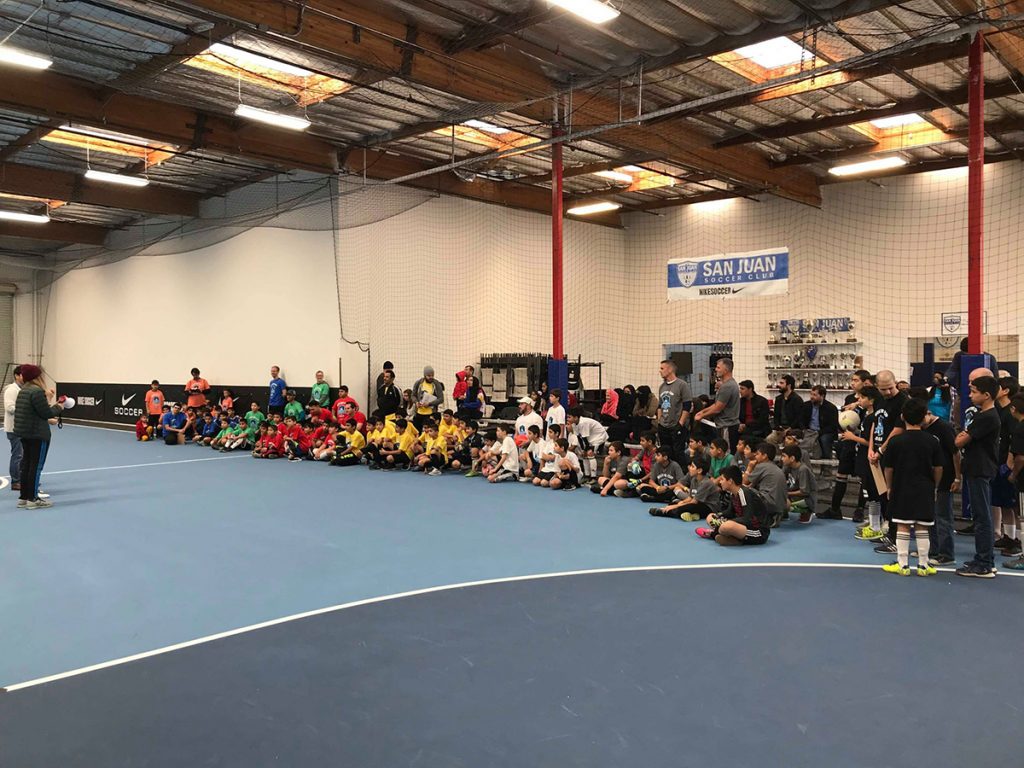
Organizing The Winter Cup was a massive community effort. San Juan Soccer Club not only donated their space but also water coolers, canopies, and even providing last minute apparel. One of their board members noticed several of the players in jeans and gave their coaches shorts for the finals, saying he didn’t want the players feeling left out. River City Christian Church provided a shuttle transporting many of the tournament participants. Twenty plus volunteers donated their time coaching, reffing, setting up, or helping with the carnival. Of volunteer efforts, Luke said, “I was really impressed by our coaches and refs who made everything go so smoothly and kept the kids ‘in it’ even if they were on a losing team. [They] were so encouraging to the players and parents…Watching the volunteers connect deeper with the Afghan community was wonderful!” Volunteer assistant coach, Mary Ann Wyatt, observed, “I could see how much joy this event brought the children and parents involved. It was exciting to see how everything came together so perfectly.” More than 75 players and their families were in attendance. Starting Point for Refugee Children brought dozens of supporters to cheer on their team. Members from San Juan school district and Starr King Elementary School’s principal came to support.
Events like The Winter Cup are new for World Relief Sacramento. For most of our history, we have served families through traditional resettlement services. This past year, however, we have shifted our focus, taken a step back, and reevaluated what it means to empower the local church and community to serve the most vulnerable. We are developing Children and Youth Services that support the entire family as they move from feeling stable to fully integrated in their new city. We look forward to what 2019 holds as we deepen our commitment to coming alongside and celebrating with our refugee neighbors.
Journeys to Belonging
This month we hosted our first storytelling night, “Journeys to Belonging,” at Beatnik Studios in downtown Sacramento. Over 200 attendees came to hear stories from refugee and immigrant women, as well as World Relief staff members highlighting different aspects of what it means to belong and feel connected to your new home. DeVon, Wade, World Relief’s Church Mobilizer, stated the fact that “when you know someone’s story, they move from being a stranger to becoming your neighbor.”
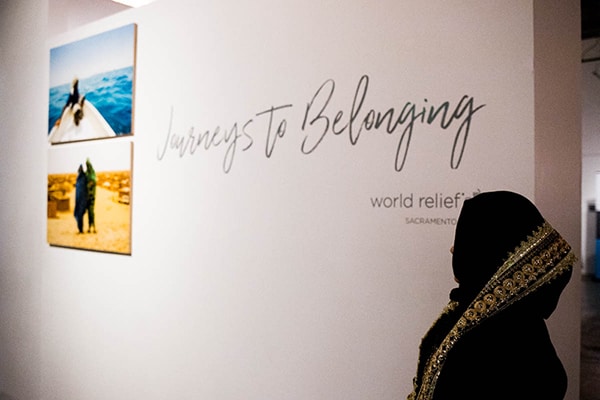
The night’s first speaker, Svitlana, came as a refugee from Ukraine. She and her husband wanted to raise their family in a safer place, one where there would be no threat of mandatory military service. She was expecting twins and was barely halfway through her pregnancy. Shortly after arriving in Sacramento, she went to the hospital for a checkup, and the doctor informed her that in a matter of minutes her first child would be born. At twenty seven weeks, she gave birth to her son and daughter. Her son needed an oxygen mask to breathe, and her daughter’s heartbeat was irregular. Svitlana’s World Relief caseworker asked what her family needed. They asked if World Relief could bring them food. They were spending as much time as they could at the hospital, going home only to shower, change clothes, and maybe get a few hours of sleep.
Svitlana expected World Relief volunteers to come, drop off food, and leave. She did not expect them to stay, to hold her children, to ask the doctors and nurses questions on their behalf. She did not expect to form friendships. Prior to coming to the United States, she thought of Americans as people who smiled and said, “How are you?” without meaning it. She no longer holds to that assumption and now describes Americans as genuine people. She concluded her story by inviting her husband and their two children to the stage, who were received with enthusiastic applause. At their last checkup, the doctors could not believe they had been born premature. Like the audience, all they saw were happy and active toddlers.
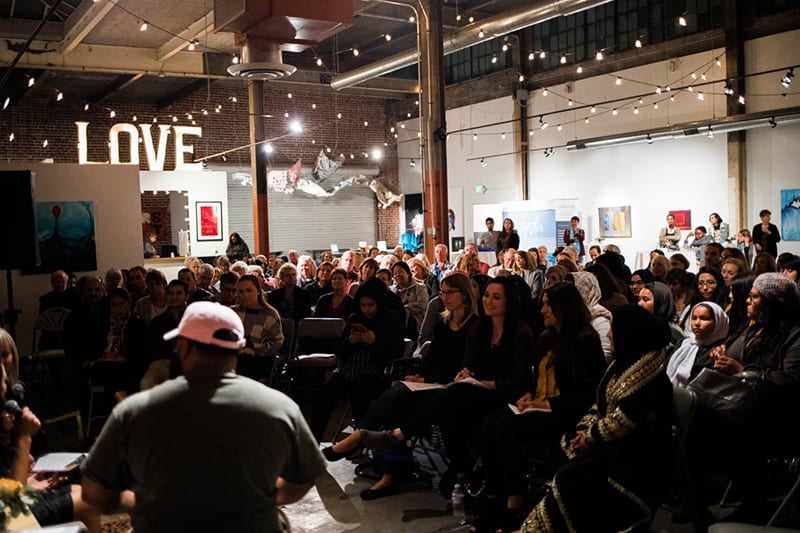
For the second storyteller, Irina, belonging had always been somewhat illusive. Born in Uzbekistan but having spent most of her life in Ukraine, she was ostracised. In her words, she was often “the only Asian girl in [her] class” and her family was protestant in an orthodox country. She and her husband, Paul, spent the first two years of their marriage in China, his home country. Because he was a Bible teacher, the government frequently threatened to revoke Irina’s visa. They tried returning to Ukraine, but when they refused to pay a bribe to the government, Paul’s visa was denied. So, they decided to seek asylum in the United States. Passports stacked on top of one another, they held hands and walked to the US-Mexico border. They were sent to detention centers on opposite ends of the country—Irina to Bakersfield,CA, and Paul to Georgia.
Of her detention experience Irina says, “I wouldn’t wish it on my worst enemy.” Even as she reflected on the experience, she told the audience about others who in her mind, however, had made more difficult journeys. Like the women from Eretria who started as group of four but were only three, their friend drowning while trying to cross a river. After four months, she won her case and came to Sacramento. Paul joined her a month later. Having spent most of their money on legal fees, they felt discouraged. A friend suggested they reach out to World Relief Sacramento for assistance. Irina was skeptical: “Why would they help me? I chose to leave Ukraine.” Nevertheless, she took her friend’s advice, and she and Paul received help with housing, employment, and transportation. This year they welcomed their first child, and Irina told the audience she was excited to raise her family in America. As a former client, she still feels connected to our office, maintaining friendships with staff. For her, Sacramento feels like home.
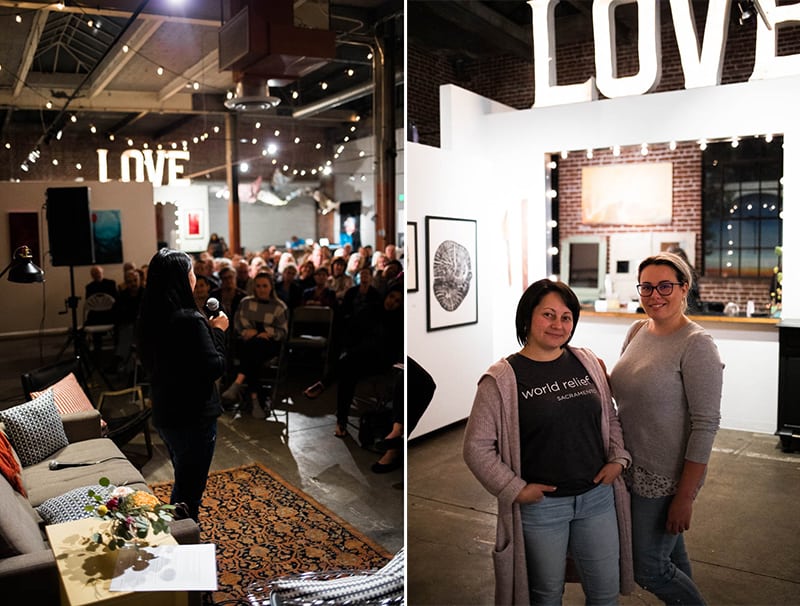
For Irina, making it to Sacramento was the start of her journey to belonging. Kobra, the night’s final storyteller, had hoped for the same. She thought that in America she would be a stronger, more independent woman. Growing up in Afghanistan, she had attended school for only four years before the Taliban banned girls from pursuing education. She liked school and had dreams of becoming a reporter. A few years ago, when she came to America, she enrolled in ESL classes. She wanted to learn the language, understand transportation systems and not be so dependent on her friends and neighbors who she felt had no time for her. The ESL classes, however, were not as helpful as she had hoped. The students were at different levels, most far more advanced than her, and when she asked questions, she was met with unkind, impatient remarks. She felt even more isolated and hopeless.
One of her friends had been attending World Relief’s ESL and activities classes. These were being (and continue to be) held at Kobra’s complex, and they are designed specifically for Afghan refugee women who have not learned to read or write in their native languages. The first few classes, Kobra said, she wasn’t sure what to think. Now, she wishes they were offered more than twice a week. She feels confident. The classes are good for her both “mentally and spiritually.” Kobra talked about practicing English with her husband and how she’d learned the difference between “love” and “like.” She flashed the audience a big smile as she said, “I love my husband. I like my mother-in-law.” The crowd laughed and cheered.
The number of refugees and displaced people is at an all time high. Now, more than, ever we want to hear refugee and immigrant voices. We are incredibly grateful for Svitlana, Irina and Kobra’s stories. Over the past three years, our region has welcomed more refugees than anywhere in the nation. Even as the number of refugees being admitted into the US decreases, our organizational mission does not change. The ingredients to making a new place home goes beyond the initial welcome and settling in process. We are committed to providing programs and services like employment and ESL classes that focus on integration and address barriers to belonging.
We are thankful for the staff who introduced each of our storytellers, to event volunteers who set up chairs and transformed a blank space into an intimate stage area that resembled a living room. We are grateful Society Church for providing AV and sound assistance, as well as our caterer, FreshMed, and the women from our refugee women’s classes who baked Afghan cookies for dessert. We look forward to hosting future social events like Journeys to Belonging where strangers become neighbors and friends become family.
The Immigration Facts: The Face of Asylum at the Southern Border
The Lion Men of Afghanistan
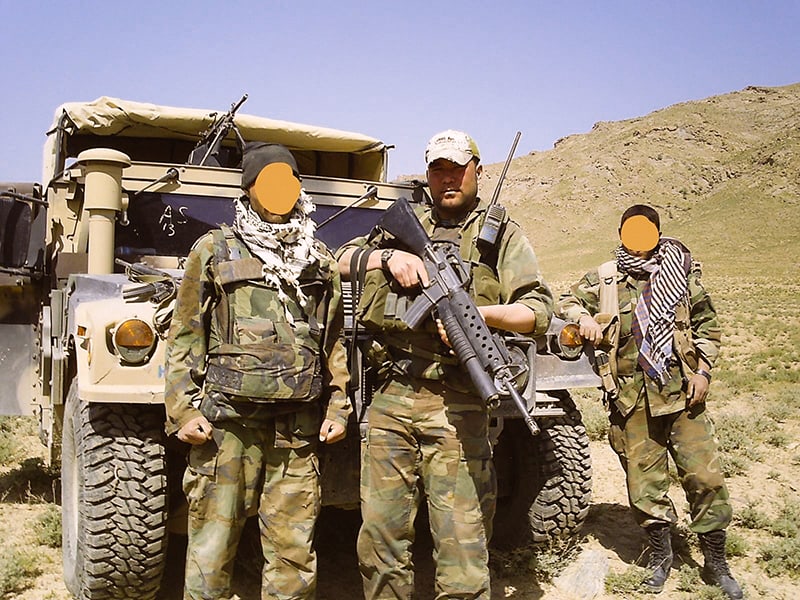
SACRIFICE AND THE COSTS OF THE REFUGEE SLOWDOWN
“As long as I am alive and breathing, you will be okay,” Ghulam exclaimed as he pulled Jawad out of the mangled U.S. army vehicle. They had trained for a scenario such as this many times before, but neither expected it would become their reality. Jawad, a linguist for the 82nd Airborne, had been trapped inside the very vehicle meant to protect him. He was bleeding badly and in shock. The unexpected IED strike killed Jawad’s co-passenger, and had it not been for Ghulam, Jawad might have experienced the same fate.
It would have been easy to panic, but Ghulam remained calm and even encouraging throughout. In Jawad’s words, he acted as a “true brother,” kindly laughing at Jawad’s fear and then giving him bravery and courage despite the grim circumstances. They had a job to do. There were three more sites to secure, three more IEDs to deal with. They needed to keep the Taliban at bay until reinforcements arrived. Jawad was medevac’d via Blackhawk helicopter to Lagman Hospital where he’d spend a month before making a full recovery. Ghulam had saved his life. By all accounts, he was a hero.
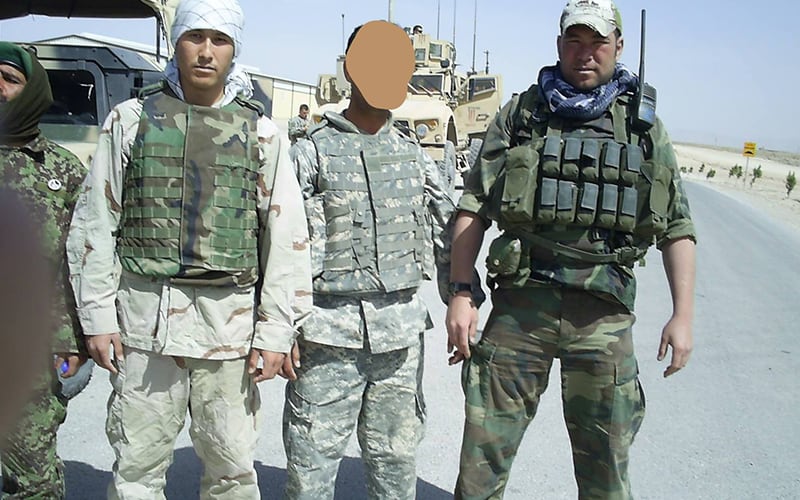
For 10 years, Ghulam served alongside the U.S. military in countless battles before making the difficult decision to apply for a Special Immigrant Visa (SIV) to come to the United States. Like so many Afghans and Iraqis who have dedicated their lives to serving our military efforts, this was a life-or-death decision for Ghulam. With more than 17,000 Afghans in the SIV pipeline, he knew obtaining a visa wouldn’t be easy. However, he hoped for a life free from combat where he could get married and have children. After all, he’d remained in contact with men like Jawad who had successfully come to the U.S. under the SIV program. Ghulam was never able to experience the life free from war he longed for. The extended screenings and waiting process proved fatal. This summer, Ghulam was killed by a Taliban-placed IED on the same stretch of road where he’d previously rescued Jawad.
From October 2016 through September 2017, the U.S. granted SIV status to 19,321 individuals from Afghanistan who had served the U.S. military. From October 2017 through September 2018, SIV arrivals were cut to just 9,953—less than half of the arrivals compared to the previous year. When asked about the drastic reduction in visas being issued, a Department of Homeland Security official said that “new vetting procedures to close security gaps and a more risk-based approach” had been implemented. This was after former Secretary of State Rex Tillerson directed American embassies to double down on visas and “increase scrutiny of visa applicants for potential security and non-security ineligibilities.” It is currently estimated that one SIV applicant is killed every 36 hours of fighting against terrorism in support of U.S. troops.
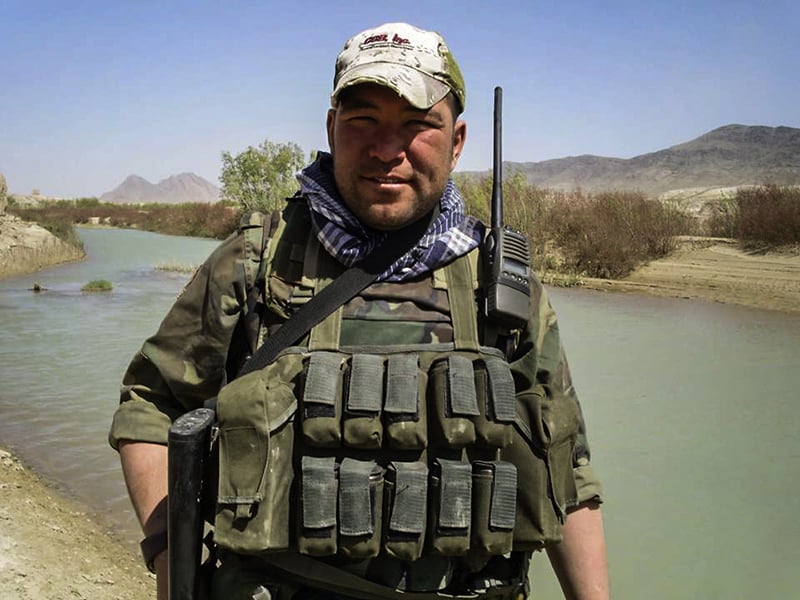
Though the security of America is the top priority in our policy and decision-making processes, we must also keep our political promises. When Congress passed the Afghan Allies Protection Act of 2009, we promised personal protection to Afghan nationals in exchange for their service and assistance of U.S. military actions within the country. Some of these roles consist of linguists, engineers, cultural advisors and soldiers. According to Scott Cooper, Director of National Security Outreach for Human Rights First, their participation remains vital for our intelligence collection efforts and the continued pursuit of peace in the region.
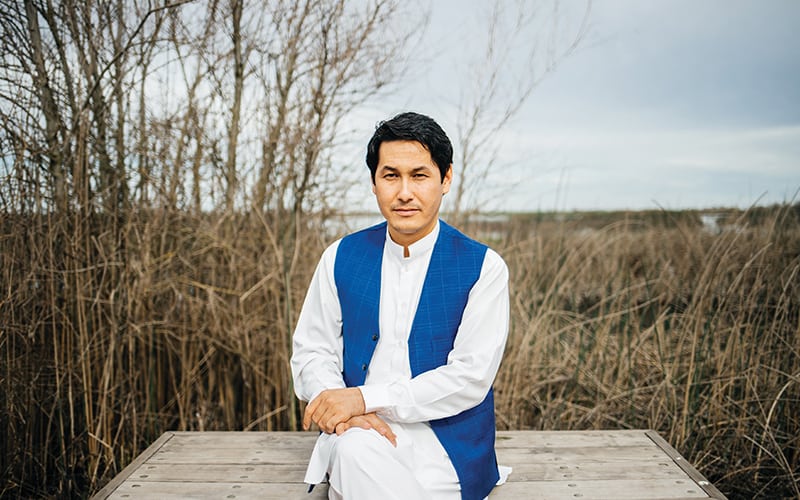
We must do better, balancing compassion and national security, as we remember those who have served alongside us. In January 2018, Jawad became World Relief Sacramento’s Afghan Cultural Advisor, acting as a liaison between staff and the refugees and immigrants we serve. He remains in contact with many of his “friends and brothers” who are still in Afghanistan waiting for their visas to be processed and the chance to experience what Ghulam had hoped for: a life of peace.
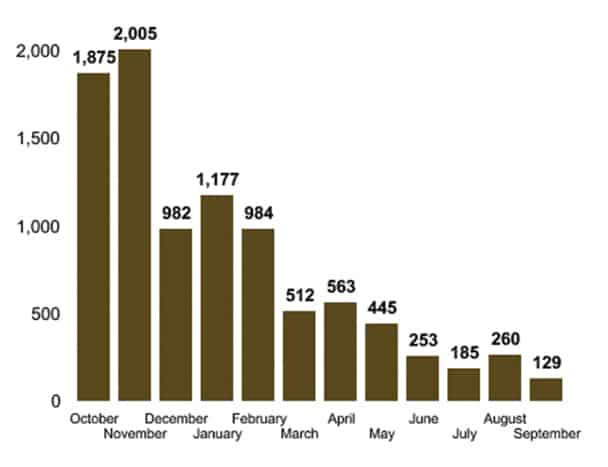
Resources Used
How to Change a Broken World
We get it. And trust us when we say, we feel it too. This video is for you… http://www.findingyes.org Music: “Does Your Heart Break? (Instrumental)” by The Brilliance
Frontline Report: International Day of the Girl Child

Frontline Reports is a series written entirely by program experts and local staff on the ground where World Relief works – updating on the countries, contexts, and situations, as they evolve.
I grew up in the Democratic Republic of Congo, where at the time, my parents were serving as missionaries. My best friends were girls from local families. We sang in the church choir, had sleepovers, played soccer, and did our homework together. It was a sweet and simple time, where the different color of our skin and cultural backgrounds was forgotten. In those moments, we were just kids playing games and growing up together.
As we grew older, however, things began to change. At age 13, I continued with school, while my girlfriends began staying home to take care of their siblings, and cook and clean the house. Now considered mature adults at the tender age of 13, they were expected to shoulder the majority of household responsibilities. If their parents could not afford to pay their school fees, or if there was too much to do at home, they would miss school.
Then, at eighteen, when I was preparing to move to the US for college, one of my friends looked at me and said, “You are lucky. You can do anything you want. Please, don’t forget about us.” It was in that moment that it dawned on me that while I was looking ahead to a bright future with countless opportunities; most of my friends would stay behind, lucky if they could afford to complete secondary school in a war-torn, poverty-stricken country.
The Challenge
Today, there are over 1.1 billion girls in the world—girls with hopes, goals and dreams for their future. And while every girl deserves equal opportunity to build her future, there are still significant challenges and barriers that stand in the way for girls all over the world. Conflict, poverty, access to education, cultural and religious norms, and social conditions are all factors that today limit girls’ access to equal opportunity.
A recent report by UNESCO found there are 31 million girls of primary school age who are not in school [1], and adolescent girls in conflict zones and 90% more likely to drop out of school as compared to girls in conflict-free countries [2], which has significant impacts for their futures. Additionally, as families are displaced, the risk of sexual violence against girls and women increases drastically and families are forced to rely on negative coping mechanisms like early marriage and child labor.
Poverty is also a significant barrier for girls, as their educational future is often dictated by the economic position of the family. When families cannot afford to send both children to school, they will almost always choose to send the male child, as girls are seen as less valuable than boys. This also leaves girls at increased risk for early child marriage. Many cultures today still believe that a girl is ready for marriage upon reaching puberty, meaning girls are dropping out of school to get married. Each year, over 12 million girls are married before they reach 18 years old, compromising their future prospects for both work and financial security. Oftentimes, girls are married off to older men so that the bride price can support her family. Isolated and with limited freedom, these girls are deprived of their rights to health, education and safety.
The Opportunity
“So God created mankind in his own image, in the image of God he created them; male and female he created them.” (Gen 1:27, NIV).
At World Relief, we believe that girls and women are made in the image of God. By working alongside local churches and community members, we work to empower girls around the world as they strive to build bolder, brighter futures. Here are some of the ways in which we are responding:



In Malawi, a girl is 50 times more likely to be married before age 18 than to enter university by age 18. 42% of girls have experience physical violence in childhood, and 22% of girls have experienced sexual violence in childhood [3]. Since 2016, World Relief has implemented girl’s groups reaching over 4,000 adolescent girls and young women in Malawi. In partnership with UNICEF, we’ve formed groups for adolescent mothers to learn more about early childhood development, nutrition, protection from HIV/AIDS and other relevant subjects. In an effort to prevent school dropout, we also bring together additional groups of girls aged 13-17 years old who provide support and encouragement to one another as they learn essential life skills during a 10-month curriculum.
In South Sudan, the world’s newest nation, millions struggle as a result of extreme poverty and poor access to food and health care. Civil war and escalating rates of violence have caused many humanitarian organizations to withdraw from the fledgling nation. Here, World Relief is reaching children whose schooling has been interrupted by conflict through our Education in Emergencies programming. This program supports primary schools to reopen, as well as providing child friendly spaces that offer primary school lessons in the absence of formal schools. Children receive school supplies to support their lessons, and teachers receive capacity-building and professional development training. To date, World Relief has enrolled 23,605 children, about 37% of whom are girls, and supported 315 teachers.
In Jordan,World Relief has developed a gender equality through sports program, using soccer as a tool to empower women and girls in vulnerable communities. In more traditional areas of Jordan, girls have very limited opportunities to exercise or play sports. Our sports program has fostered self-esteem, empowerment and self-advocacy for girls from all backgrounds by challenging harmful gender norms and providing opportunities for leadership. The program has also brought both Jordanians and Syrian refugees together and provided an avenue for dialogue and violence prevention. Since 2016, nearly 300 girls have been reached through the soccer program. The change has been incredible. Teachers have transformed into coaches, students have transformed into athletes, and loosely held hopes have transformed into bold and vibrant dreams.
Call to Action
Today, on International Day of the Girl Child, I am reminded of the words of Malala Yousfzai (Pakistani education activist) who said, “We cannot all succeed when half of us are held back.” So let us strive forward and continue to be advocates and champions for girls. Let us bring gender injustice and inequality to light so that girls may be protected, celebrated for their gifts and talents, and given equal opportunities to pursue their dreams. And let us imagine the impact across nations when we invest in young girls, realizing their unique value as girls who have been beautifully and wonderfully made in the image of God.
[1] UNESCO: Girls’ education – the facts, October 2013
[2] Education for All Global Monitoring Report, 2015
[3] Together for girls: Malawi

Laura Mouanoutoua joined World Relief in 2015 and currently serves as Program Officer for Disaster Response and Middle East programs. Laura grew up in the DR Congo, where her parents served as missionaries, and has witnessed first-hand the difficulties that internally displaced peoples and refugees face. Laura is passionate about engaging against social injustices, with a strong spiritual conviction and desire to work with the church at large for the support and success of refugee and conflict-affected populations.
Standing in the Gap
In Ezekiel 22:30, the prophet says on behalf of God, “I looked for anyone to repair the wall and stand in the gap for me on behalf of the land, so I wouldn’t have to destroy it. But I couldn’t find anyone.”
In the ancient world of the Bible, cities had walls surrounding them to provide protection from enemies. When the wall was breached, the city was vulnerable to destruction; the only way to secure it was for people to risk their lives by literally standing in the gap in the wall and fighting the enemy.
I remember the first time I heard the term “stand in the gap” because I had no idea how I could do that for anyone, especially immigrants. My own immigration story had been simple and resolved easily when I was in elementary school. It had left me ignorant of the plight of many immigrants to the U.S. I distinctly remember the pleasure of flying into the Los Angeles Airport with a tourist visa and landing to the welcome of family, including an uncle who had become a U.S. citizen and already filed for an immigrant visa for his brother, my dad. My uncle, unknowingly, had stood in the gap for us.
More recently, I’ve been reflecting on this idea. If there’s a biblical model for standing in the gap for vulnerable people, how do I stand in the gap for my immigrant neighbors?
At least part of the answer came to me incidentally through my work at World Relief, which has brought the brutal realities of our immigration system into my life. Stories I would rather not know. Stories most people don’t want to know either.
-
Stories of teenagers terrorized by gangs in their home countries, seeing no other option than a long journey north to live with a relative in a safer place.
-
Stories of families who never had any desire to migrate but were forced to close their businesses and head north because they could no longer afford to pay their criminal extortioners and feared for their lives.
-
Stories of men and women living in impoverished economies and unable to feed or educate their children, so they head to the U.S. in search of job opportunities and a better future.
-
Stories of relatives who suffered terrible and undignified deaths crossing the desert and had no burial or memorial service.
It’s difficult to hear these stories, but I’ve come to realize that part of standing in the gap is bringing the whole, ugly and ruthless world into our lives, into our understanding of family and love of neighbor. Our willingness to listen to and enter into these stories allows us to share in the suffering of our neighbors and stand in the gap in prayer and advocacy. It’s far more difficult to stand in the gap for statistics and economic rhetoric around a political issue, but put a human face and a story on that same issue and everything changes.
A friend once told me that she couldn’t do my job—she couldn’t listen day after day to the tragedy and suffering that is often part of the immigrant experience because she would want to take every person home with her.
I do take every person home with me, but not in the way she meant. I carry those stories with me everywhere. They inform the way I vote; how I see other immigrants; the way I speak about them to other people; and how I advocate for them. I have seared them into my consciousness. And I know I’m not complicit in their suffering and terror. Instead, their stories keep me hungering and thirsting for righteousness, as Jesus says in the Sermon on the Mount (Mt. 5:6).
They make me long to see justice and compassion in our immigration system, despite the fact that all efforts at reform of that outdated system have failed in recent years.
And yet I have hope. Because Jesus promises that those who hunger and thirst for righteousness will be filled. My prayers and advocacy for immigrants are fueled by that promise.
It’s important to stay thirsty for righteousness, but it’s important to stay hydrated, too. And for me, that means standing in the gap for my immigrant neighbors, drinking in all their stories while I pray and advocate for them.

Karen González has worked at World Relief’s headquarters in Baltimore since 2015. She is an HR professional, an immigrant advocate, and a writer, who emigrated from Guatemala to the U.S. as a child. Karen has a graduate degree from Fuller Theological Seminary, where she studied theology and missiology. Her first book, releasing in May 2019, is about her own immigration story weaved with theological reflections on the many immigrants found in the Bible.
The Power of an Idea: Ara’s Story
“My name is Ara. I am 37 years old, and I am from Afghanistan.” She wears a floral print blouse and a black headscarf. She has just finished that day’s Vocational English class, which meets Monday through Thursday for four-hour sessions at World Relief Sacramento.
An interpreter is present, and when asked to tell her story, Ara switches from hesitant English to quick Dari. In some parts of Afghanistan, she explains, arranged marriages are common. She was twelve when she met and married her husband, who was many years her senior. After they married, the couple left Afghanistan and moved to Iran for safety. Together they had a son. Her expression, throughout the telling, remains serious and guarded. Life, she says, was difficult.
After twelve years of marriage, she divorced her husband and returned to Afghanistan. A young divorcee with a child in tow, Ara received at best a chilly reception. Not long after returning home, her husband declared that he wanted custody of their son. She knew the court would side with the child’s father; so again, she left home, this time fleeing with her son to Turkey.
She spent several years in Turkey, struggling to survive in a huge, foreign city. In 2015, she and her son received their refugee visas. They were to be resettled Sacramento, CA through World Relief. Upon arrival, she was greeted by her assigned caseworker, who along with other World Relief staff, helped Ara during her first 90 days in Sacramento with housing, social security card applications, medical appointments, and school enrollment for her son. With all of their basic needs met, it was time for her to find work. For several years, she did all sorts of jobs, mostly in restaurants and hotels as a dishwasher or housekeeper.
She wanted more. Her goal was to run a day care out of her home. In order to do so, however, she needed to learn English. World Relief partnered with LONA, a San Francisco based non-profit, to help cover her expenses for six months so she could attend World Relief’s ten week Vocational English class. On her first day, she was greeted by a familiar face. Her former caseworker was now her ESL teacher.
In addition to being determined, Ara is generous and constantly thinking of others. She wants to set up a day care in her home and show other women how to do the same. The daycare, however, is just the beginning. Her dream, she says, would be to build a community center where Afghan and Arabic women can learn English, make crafts, share skills and ultimately sell what they make. Too expensive, she said, waving the dream away, but her dream sparked an idea.
While World Relief does not have a community center, it does have a spare apartment in a nearby apartment complex. The furnished apartment serves as temporary housing for families. In June, World Relief launched two pilot programs designed for women, using the apartment as a teaching and meeting space. One meets on Tuesdays and Fridays, where the women gather for social activities and for a brief ESL lesson. Another is an ESL class that meets Mondays and Wednesdays.
On Tuesdays and Fridays, the sparsely furnished apartment transforms into a lively gathering space that feels homey and warm with 10 to 15 Afghan women and several World Relief staff and volunteers present. So far, the group has made earrings, gone on a trip to the fabric store, baked American and Afghan cookies, and started a macramé project. They have learned to spell their names and say their birthdays in English, and how to call 911 for emergencies. During the fourth week, the program coordinator asked the group what projects and ESL lessons they had liked. A woman who during the first few meetings had barely spoken said that she liked knowing how to spell her name and address. Another woman said, “I like everyone here.” Another, more exuberant member of the group agreed, and added, “I like everything!”
On Mondays and Wednesdays, the group is smaller, fitting on the apartment’s two sectionals. The ESL instructors demonstrate greetings the class has learned with an inflatable ball. “How are you?” the instructor asks the co-instructor and throws her the ball. “I’m fine, how are you?” the co-instructor says, tossing the ball back. They repeat this simple exchange several times before the instructor moves on to the next greeting. “How are you?” tossing the ball to the co-teacher, who with dramatic flourish, answers, “I’m tired. How are you?” With equal gusto, the teacher says, “I’m tired” and slumps in her seat. After observing for several minutes, the women join in the exercise, some following the instructors’ leads and slumping or straining their voices when they catch the ball and answer, “I’m tired. How are you?”
There are not whiteboards, no handouts, no pencils or notebooks. The curriculum is designed for pre-literate learners. “We move on,” the instructor explains, “When the group is ready.” The students, not the teachers, set the pace. In the first week of class, a very pregnant woman joined them. The instructors assumed she would not be able to finish the course, and after the second week, she gave birth to her son. Traditionally, Afghan women stay home to be taken care of by their families for forty days after giving birth. However, the woman came back with her son to class just ten days after his birth. She wanted to resume learning English as soon as she could. Her return gave the group a chance to learn a multi-syllabic tongue twister of a word: “Con-gra-tu-la-tions!”
World Relief hopes to continue to build on Ara’s dream and serve more women across Sacramento County. Once these pilots wrap up, they hope to launch several more in different refugee dense apartment complexes. They have started a crowdfunding campaign to help fund future efforts. As Ara puts it, all women should have the chance to learn, the chance to work if they want to, and the chance to be self-sufficient in their new country.
For the sake of confidentiality, names in this story have been changed have been changed.










